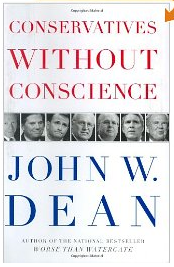Republican Sen. Mitch McConnell Decides That Homeless Veterans Do Not Deserve Assistance – As Sen. Patty Murray’s (D-Wash.) office explained, her Homeless Women Veterans and Homeless Veterans With Children Act would “expand assistance for homeless women veterans and homeless veterans with children and would increase funding and extend federal grant programs to address the unique challenges faced by these veterans.”
It was approved in committee with bipartisan support, and Murray brought it to the floor this morning, seeking unanimous consent. She didn’t get it — Senate Minority Leader Mitch McConnell (R-Ky.) objected on behalf of Sen. Tom Coburn (R-Okla.), who apparently was concerned about funding. In the Senate, a single objection halts a bill.
With an estimated 107,000 homeless veterans, this is pretty low, even for Republicans.
Another Blowout Preventer Failure; This One on Dry Land – On June 3, a natural gas well in central Pennsylvania erupted despite the fact that it too was outfitted with a blowout preventer, spewing gas 75 feet into the air for 16 hours before it was brought under control. “[The BOP in Pennsylvania] was supposedly tested the morning before the accident,” said Pennsylvania Dept. of Environmental Protection spokesman Tom Rathbun.
Hard data about the reliability of blowout preventers is hard to come by. But back in 2002, West Engineering conducted a test of seven BOPs “at the most demanding conditions to be expected.” Five were successful in sealing the pipes, but two failed. The study concluded that the data “paints a grim picture of the probability of success.”
It appears you don’t have to be a mile under water to have a problem.
Blowout Preventers Have Common Problems Including Design and Operation – Blowout Preventers have come under scrutiny in the past for common problems that are going unaddressed. In 2003, a report warned that the oil production industry as a whole was not taking the time to properly inspect for and repair problems typically associated with BOP’s. In addition, the report warned that with the increase in the strength and durability of modern drill pipes, many of the rams are now unable to break through and stop the flow as intended.
The 2003 report, released to industry insiders at the Offshore Technology Conference in Houston that same year, indicated that an industry-wide focus on uninterrupted drilling had resulted in companies being eager to pay higher maintenance costs in order to avoid any downtime. Unfortunately, it is during this downtime that drilling equipment is able to be thoroughly inspected for problems that are known to manifest with use. The report even noted that downtime caused by low BOP reliability is quite a common occurrence, with each incident costing upwards of $1 million. These dependability issues were the result of oil production companies failing to provide adequate design specifications to the BOP manufacturers. This caused BOP designers to create devices that did not necessarily meet the exact needs of each particular drilling operation. In fact, the devices tended to be hastily placed on the market without proper testing and when one failed, the pressure to continue drilling meant that the devices were rarely studied to determine why they had malfunctioned.
Moral: Haste makes waste (of our shorelines and wildlife).
The U.S. Senate was Warned Over Seven Months Ago About the Dangers of Sloppy Operations in the Gulf – Below is a map of oil production in the Gulf of Mexico. This map comes from testimony by SkyTruth president John Amos to a Senate panel five months before the BP oil gusher in the Gulf. Mr. Amos warned of possible catastrophes in the Gulf, including failure of blowout preventers, even in shallow water. Mr Amos stated there were 18 blowouts and 13 losses of well control in the U.S. Gulf of Mexico since 1983. He also discussed the problems of spills from the network of pipes in the Gulf. On the map below, the green lines represent active pipes (25,000 miles in all). Yellow dots represent oil rigs. Of the 3,600 yellow dots, only 33 would be affected by the moratorium on deepwater drilling.

Regards,
Jim





























